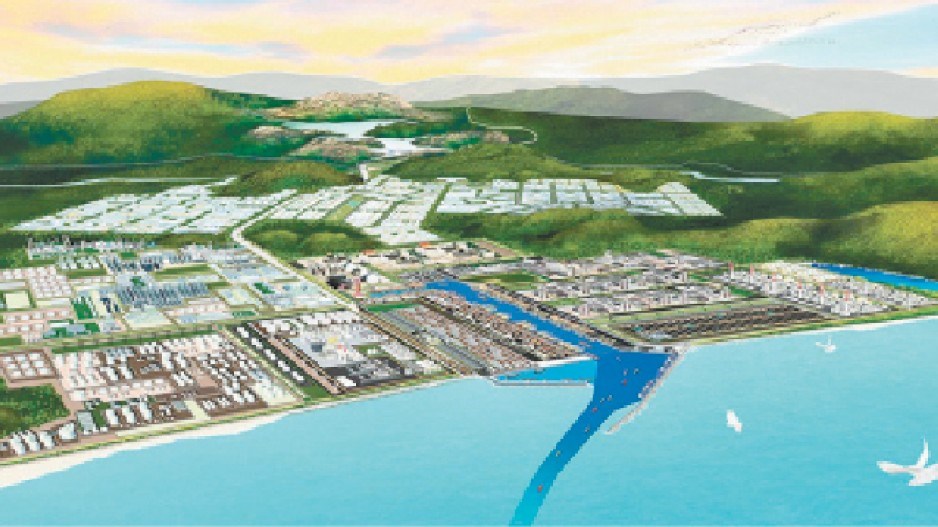Thailand is one of the cornerstones of Southeast Asia, and the economic implications of what is likely to be a prolonged period of political upheaval in the country are profound and also stretch beyond its borders.
Continuing political uncertainty in Thailand will act as a drag on the already ambitious plans to form the 10 countries of the Association of Southeast Asian Nations (ASEAN) into an economic community similar to the European Union by the end of 2015.
Thailand’s is a key voice in ASEAN’s dialogues with regional and global partners.
A lame government in Bangkok will affect the tone and tenor of regional issues, such as talks with China on territorial disputes in the South China Sea.
An immediate repercussion, however, will be investor hesitation to plunge into putting money into the massive, and by some judgments, visionary $50 billion development of a port and industrial zone at Dawei, on Burma’s Andaman Sea coast just over Thailand’s western border.
The 200-square-kilometre Dawei special economic zone is only 250 kilometres from the Thai capital, Bangkok, but over 500 kilometres from Burma’s commercial centre, Rangoon. Dawei is envisaged as a production and transportation hub linking central Southeast Asia, including Cambodia, Vietnam and Laos, to the Indian Ocean and avoiding the cost and strategic insecurity of sending maritime trade through the Malacca Strait “chokepoint.”
However, the new uncertainty about political stability in Thailand comes as the government of Burma, also known as Myanmar, is attempting to restructure investment in the Dawei project. This comes after Thailand’s largest construction company, ItalianThai Development PLC, was unable to come up with money for the first stages of the project and has had its 75-year concession taken away.
Dawei has been restructured as a 50-50 Burma-Thai project, and both governments are hoping Japan will come to the scheme’s rescue.
Japan is already the largest foreign investor in Thailand and has been an eager hunter for opportunities in Burma since President Thein Sein took over from the military junta two years ago.
The prospects of using Burma’s untapped store of cheap labour to manufacture Japanese goods in Dawei for sale throughout Southeast Asia looks attractive on paper.
But Japanese and other potential investors will need to take an exceptionally long view of history if they are to find the Dawei project attractive.
After weeks of street protests by supporters of the opposition Democratic Party demanding an end to her government, Thai prime minister Yingluck Shinawatra is attempting to clear the air by calling an election, which would probably be held in February.
But this is merely the latest incident in an ongoing fissure in Thailand’s public and political life that boiled to the surface in 2006 when the then-prime minister Thaksin Shinawatra, Yingluck’s brother, was ousted in a military coup and now lives in exile.
Yingluck and her Pheu Thai Party (PTP) are all but certain to win the election, as it has under various names in every election since 2006, because of strong support in rural Thailand.
There is little reason to expect that the opposition Democratic Party, and especially its firebrand former deputy leader Suthep Thaungsuban, who resigned from the party last month to lead the street protests, will accept the election outcome.
At the heart of Thailand’s political uncertainty is a deep philosophical rift. On one side are supporters of parliamentary democracy who mostly line up behind the PTP. On the other side are many members of the country’s economic and intellectual elites, who are strongly royalist and who favour some form of appointed governing council under the authority of King Bhumibol Adulyadej.
By granting Prime Minister Yingluck’s request to dissolve parliament and call an election, the king is displaying the even-handedness for which he is renowned.
The king, however, has been seriously ill for several years, and his moderating presence is unlikely to continue much longer. •
Trade between Canada and resource-rich Burma unknown, non-existent or both
Canadian investors and business people have not been rushing to make up for lost time since Ottawa lifted decades of sanctions against Burma in 2012 following the retirement of its military government and dispatched an ambassador to set up an embassy in Rangoon earlier this year.
The current quick crib sheet put out by Canada’s Foreign Affairs department describing bilateral trade is bluntly truthful. There doesn’t appear to be any.
Under the headings of Canadian Exports in 2012, Canadian Imports, Foreign Direct Investment from Burma in Canada and Canadian Direct Investment to Burma, the notations are all the same; “n/a.”
Whether that means simply “not applicable” or that statistics are “not available” is not clear.
Even more mystifying is that the non-statistics are accompanied by colourful pie charts showing that Burma imported machinery from Canada last year and vegetable products came the other way. But there are no numbers attached to these graphics.
Canada’s first ambassador to Burma for 25 years, Mark McDowell, who took up his post in March, is the man to try to fill in those blanks.
McDowell probably knows more about Burma, the name the Foreign Affairs department still uses for the country often called Myanmar, than anyone else in Canada’s diplomatic corps.
Until the opening of the embassy this year, relations with Burma were managed by the Canadian embassy in Thailand. McDowell, as head of the political section in the Bangkok embassy between 2003 and 2007, made a couple of dozen trips to Burma.
He was open in his opposition to the Ottawa government’s policy of applying strong trade and investment sanctions on Burma while giving money to Burma’s opposition and exile groups. This approach, McDowell said, gave Canada little influence over events in Burma or stature in what has become one of the most fawned-over investment targets in Southeast Asia for its treasure of untapped resources.




